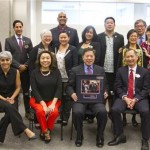By Jane McNeill
Silicon Republic, November 22, 2018 —
A job interview is about ‘show, don’t tell’.
Can you prove the skills you have with examples?
A lot can happen in 60 internet seconds. It’s estimated that in just one minute, we send more than 29 million WhatsApp messages, 3.3 million Facebook posts, 448,800 tweets and almost 150,000 emails. And, as digital natives, I’m guessing you have probably communicated using at least one of these mediums in the past day, the past hour even.
As such, it’s probably also fair to assume that using technology is second nature to you and that you are able to quickly grasp the latest online communication tools, from instant messaging to video conferencing, with relative ease.
In fact, a recent study found that globally, 65 percent of Gen Z and millennials prefer to communicate digitally both inside and outside of work. And, while your digital literacy is one of the most coveted attributes today’s employers look for in candidates, there is perhaps a concern that this has come at the cost of one important soft skill: face-to-face communication.
No matter how much technology evolves, face-to-face communication will always be fundamental for employee learning, productivity, wellbeing, relationship-building and, ultimately, career progression and good business.
So, how can you prove to an interviewer that you have the face-to-face communication skills that every employer is looking for?
Every employer is looking for face-to-face communication skills. (Photo: YakobchukOlena/Stock.adobe.com)
Prove you can build a rapport with others
First off, when you arrive for your job interview, greet everybody you are introduced to (regardless of whether they are your interviewer or not) with a warm smile, eye contact and a firm handshake. While these people won’t make the final decision, they will often feed back to the interviewer.
Secondly, take steps to build a rapport with your interviewer. Listen intently as they speak and be careful not to interrupt, pausing for a second before answering. After all, listening is a key part of effective communication.
You should also bear in mind that we mostly communicate through our body language.
Looking around the room, leaning back in your chair or fidgeting a lot can imply your mind is elsewhere and that you are disengaged.
On the other hand, positive body language, such as sitting up straight, leaning forward, and nodding and smiling as you are spoken to will show the interviewer that you are paying attention and are engaged in the process.
You may also consider preparing questions to ask your interviewer about their own career journey within the business. This is another great way to build a connection. Some candidates hesitate to ask these questions in case this comes across as too invasive. However, more often than not, the interviewer will be flattered when a candidate shows an interest in their career journey, just as long as these questions are professionally and positively phrased. For instance, you could ask: ‘What are your favourite aspects of working here?’
I would also advise double-checking with your recruiter to find out if you are likely to be introduced to any other employees during the interview process. If so, prepare questions to ask your potential team members to further illustrate your rapport-building skills.
Answer the interview questions with confidence and clarity
Another common concern that we hear from our clients is that because digital natives communicate so much online and are thus used to being able to edit what they are about to say before they hit send, they are sometimes less confident and concise when it comes to standing up and speaking in front of others. Employers worry that this will be a hindrance when it comes to speaking in meetings, giving presentations or talking on conference calls.
You can actively tackle this concern during your interview by preparing to speak with conviction and answering interview questions confidently and clearly. Before your interview, follow some of the recommended confident-boosting steps such as taking deep breaths, picturing positive outcomes and speaking with your recruiter to put your mind at rest.
You should also practice answering common interview questions, and sticking to a structure in order to keep your response concise and relevant to the question asked. I would recommend the STAR technique (Situation, Task, Action and Result).
Question:
‘You mention here on your CV that you have strong communication skills. Can you describe a time you applied these to a face-to-face situation?’
Answer:
- Situation: ‘In my current role, we recently launched a new service for our clients.’
- Task: ‘As a key account manager, I was asked to pitch the service to one of my accounts. The objective of the pitch was to communicate the unique selling points of this product.’
- Action: ‘I prepared my points thoroughly and practised pitching to my boss. I was receptive to my boss’s feedback and adapted my communication style so that it was more simplified and used less jargon.’
- Result: ‘My pitch was well received by the client who not only understood the service but rolled it out within their business shortly after the meeting, which increased our monthly revenue by 15 percent.’
Be responsive in your communications, both before and after the interview
Lastly, your interviewer won’t just be assessing your communication skills during the interview itself, they will also be looking at how communicative and responsive you are before and after. For instance, they may well consider how quickly you respond to emails and phone calls, and how forthcoming you are in opening up the lines of communication yourself.
Therefore, I would advise that you keep your phone close by both before and after the interview, so you can respond quickly and easily. You should also be proactive in contacting the interviewer via your recruiter after the interview to thank them for their time and to reiterate your interest in the position.
No matter how much we evolve our online communications, nothing can replace the human interaction needed to build lasting professional relationships that can power your career forward. And, just because you are a digital native, it doesn’t mean you don’t have the face-to-face communication skills needed to thrive in the world of work.
Jane McNeill is managing director of both New South Wales and Western Australia at Hays Recruitment.












